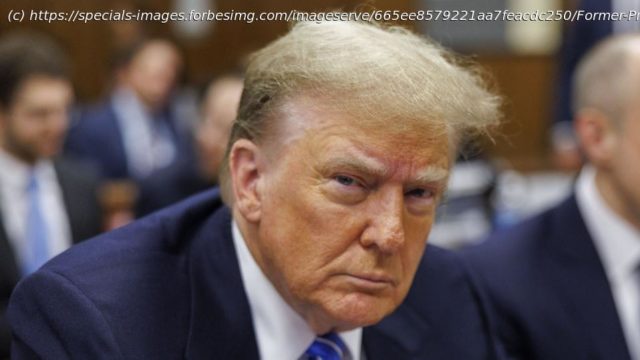Trump’s federal criminal case for trying to overturn the 2020 election has been paused while the Supreme Court considered the issue.
Topline
Former President Donald Trump has immunity from official acts he took as president, the Supreme Court ruled Monday in a 6-3 ruling—which is likely to delay his federal criminal case for trying to overturn the election, but shouldn’t derail it entirely, as the court ruled he can still be charged for activities outside his official duties.Key Facts
Trump’s federal criminal case for trying to overturn the 2020 election has been paused since December as the ex-president has asked for the charges against him to be thrown out, claiming to the Supreme Court he has “presidential immunity” that shields him from criminal charges based on actions he took in office.
The Supreme Court ruled 6-3 that Trump and presidents more generally have “absolute immunity” from charges for acts that fall under their “core constitutional powers”—like appointing officials—and “presumptive immunity” for official acts taken while in office, but they’re not immune from acts that aren’t part of their official duties.
Justice Department prosecutors argued Trump’s immunity claims are “unfounded” and a president doesn’t have a “general right to violate” laws, arguing to the high court that the fact other ex-presidents haven’t been prosecuted before Trump “underscores the unprecedented nature of [Trump’s] alleged conduct.”
The ruling means that Trump is immune from being punished based on some of the conduct he’s been indicted for in his federal election case, such as using the Justice Department to push his false claims of election fraud.
Discussions Trump had with then-Vice President Mike Pence—in which he told Pence not to certify the election results—constitute official acts, the court ruled, meaning Trump “is at least presumptively immune from prosecution” for those conversations, but it’s up to the lower court to decide whether he should actually be immune.
A lower court also still has to decide whether other acts were official or unofficial—like pressuring state officials to change results and speaking before the Jan.






